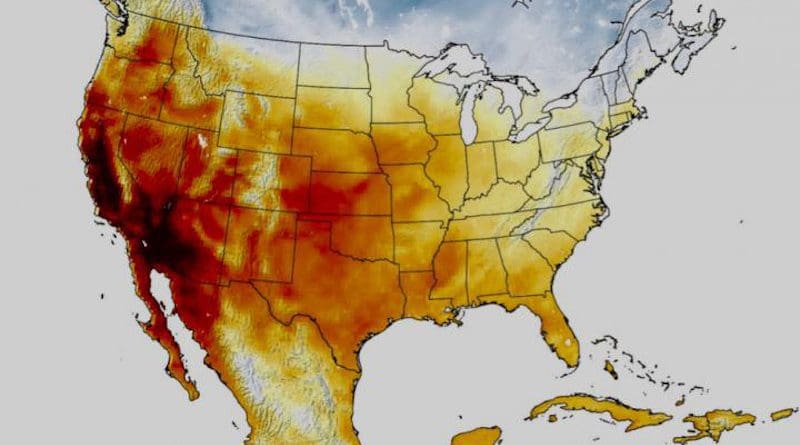Disadvantaged Communities May Get Overlooked For Climate Adaptation Funding
While extreme heat threatens the wellbeing of people all over the world, a new study from scientists at the University of Miami (UM) Rosenstiel School of Marine and Atmospheric Science found that some disadvantaged communities in California could be overlooked for state climate adaptation funds.
As government and communities across the U.S. ramp up efforts for equity-oriented climate change adaptation, questions about how to effectively identify and prioritize the limited funding across communities in practice remain.
In this study, researchers used California as a case study to evaluate how the state is targeting and prioritizing environmental justice communities for extreme heat adaptations. When the researchers analyzed CalEnviroScreen 3.0, California’s program used to designate a census tract as “disadvantaged” and therefore eligible for equity-oriented project monies from the Greenhouse Gas Reduction Fund, they found that relying on CalEnviroScreen alone may result in the state overlooking 348 communities that would be eligible under two alternative indices.
“There are limits to the effectiveness of using a single index to guide a fund with projects and communities as diverse as those under the California Climate Investments program,” said Lynée Turek-Hankins, a doctoral student at UM’s Abess Center for Ecosystem Science and Policy and lead author of the study. “We highlight the need for context-specific tools that can capture local nuances and variabilities.”
Although this study focused specifically on extreme heat in California, its findings are applicable for other climate-related hazards and states, said Turek-Hankins.
“Climate change is a threat multiplier for both people and nature. It amplifies risks for communities already grappling with environmental hazards and social stressors. But getting adaptation right at the implementation stage, attuned to differential impacts and benefits across communities, is far from straightforward,” said Katharine Mach, associate professor in the Department of Marine Ecosystems and Society at the Rosenstiel School and a co-author of the study. “This analysis points to the importance of combining cross-cutting risk screening with attention to context–the hazards, the needs of communities, and the effectiveness of different resiliency strategies.”

